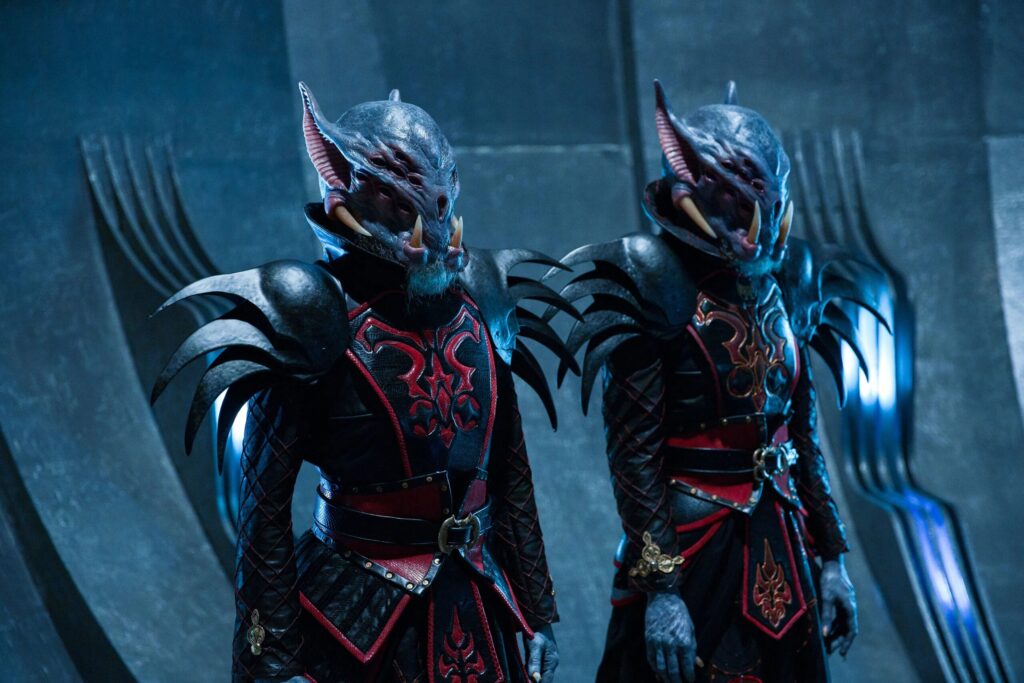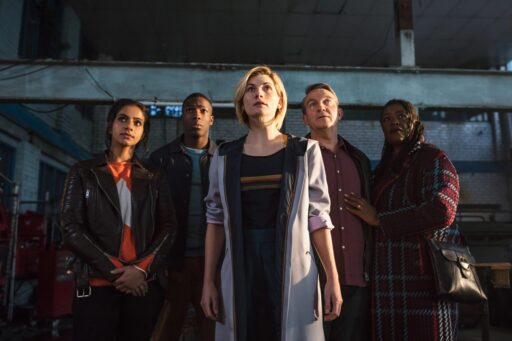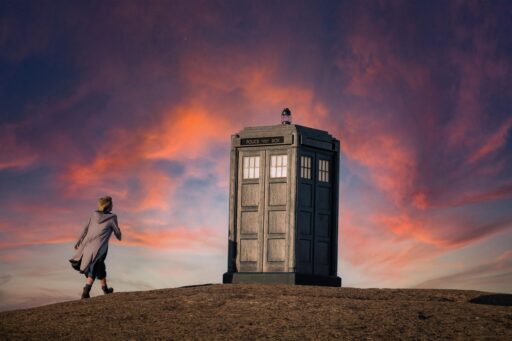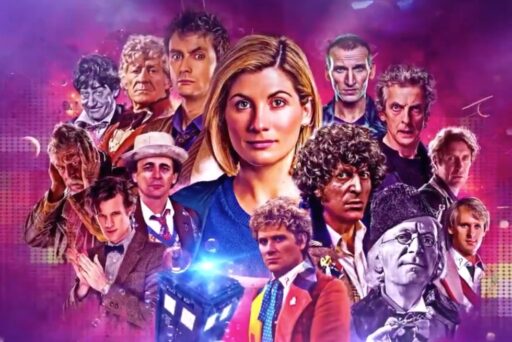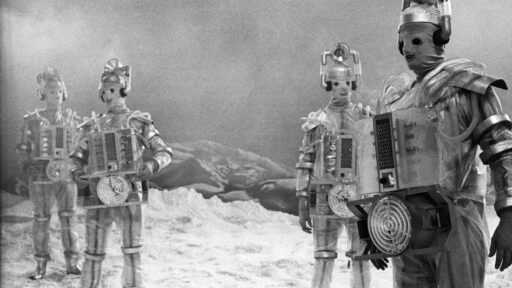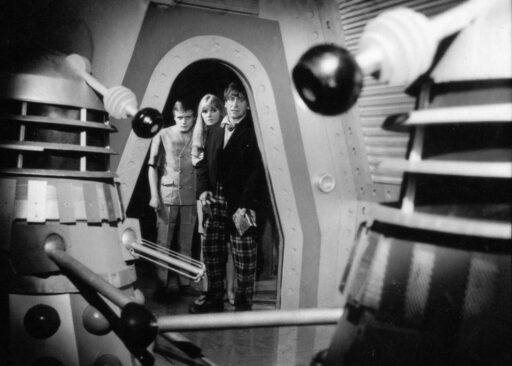This is probably one of the best received stories of the Chibnall/Whittaker era and for me at least it is easy to see why it might appeal to so many people. At its heart is is a very simple story, but one that I think any viewer could relate to on some level. There are some flaws still though, familiar ones at that.
This episode looks amazing to me. First off we have that cinematic style that this season has been using with the wide-screen shots, anamorphic lenses and the color grading. That’s amplified further here by the location footage which just looks stunning. Shooting this in Spain was worthwhile in that it definitely did not feel at all like Britain visually. Perhaps someone with more awareness of directors etc. will be able to spot flaws but if they are there they went unnoticed by me.
Family and the Past
I always enjoy seeing Yaz interact with her family and part of me wishes that we’d seen more of that over the seasons but at the same time I don’t want the show tied too heavily to one time and place so, it’s at trade-off. RTD is of course generally well regarded for his inclusion of “soap opera” family elements in his run but his take on it ran much more towards the comedic. As a result those families felt like, dare I say it, stereotypes to me. On the other hand the way Yaz and her family interact just feels natural and it’s great. Neither of those approaches is wrong, I just enjoy the latter more than the former.
It’s interesting to see how this particular Doctor approaches the issue of meddling with time. She knows it’s a bad idea, she tells them it’s a bad idea, but she’s curious. Throw on an eagerness to please her friends and of course she goes along with it. Even her lecturing seems a bit half-hearted. Of course as viewers we have been trained to know that meddling in your own past never goes well!
This is the first televised Doctor Who story set in India, and I’m not aware of very many extended universe stories set there either, so it’s definitely an under-utilized location. On top of that setting this during the partition is a brave choice. At least when I was at school, all those many moons ago, that was a bit of history that simply wasn’t taught. None of us like to admit our mistakes or misdeeds do we? Having those tensions in the background as the Doctor and companions arrive creates a simmering worry as the episode progresses.
They don’t shy away from the topic either or from what happened as a result of it. I particularly like that while putting blame, where it firmly belongs, on the British for enacting the partition the story highlights that it is local people who are doing most of the damage. There’s no shortage of villains here, speaking of which!
The Demons

We’re clearly primed to see the Thijarians as the antagonists of this story from their first appearance and before we know anything about them. They’re hovering around a dead body and their telepathy is so harsh it’s almost a mental attack. Of course we, like the Doctor and everyone else, will jump to conclusions. And those conclusions are reinforced when we get a little information on their background, Thijarians are bad, everyone knows they are bad! Though I’ve got to say they look incredibly cool and I feel like while I was being assassinated by them I’d probably be thinking, how come they look so cool? Bonus points to whoever did the design work on this one.
The presence and apparent threat of the Thijarians does more than serve as a red-herring to the viewers though, they propel the plot forward, providing tension as we feel like the family is under threat of death from them. Their repeated appearance gives the Doctor a reason to stay and be an active protagonist as well as eventually providing us with foreknowledge that colors the final part of the story. This story could have been told without any aliens and I know some people would have liked to see that, but it would have been a significantly different story because you would need to introduce some additional characters to achieve the same goals. In addition part of the point here is the realization that the humans are the Demons.
What transpires is both inevitable and trivially avoidable at the same time. Manish and his extremism are present from the beginning although mostly going under the radar because of the Thijarian threat. There’s always the question of what could have been said or done and when would the action have made the difference. By the time Manish and Prem are standing on opposite sides of the gun it’s already too late.
All in all this is a very mature story with some subtlety and nuance in its presentation. It doesn’t give us easy answers, or even a clear win because that’s not really what life is about and this story is rooted in life. Even the fact that Umbreen goes on to have a full life and marries someone else rings so much more true to life to me and is so much more healthy than yet another story where love is instant and permanent and soul mates seem to mean the universe putting you together and there can’t ever be anyone else.
Once we know what is going to happen (if not all the specifics) there was a risk of it becoming incredibly angsty and blatantly pulling heart strings, but I think it largely steered clear of that trip. We feel the blow coming and we can see the upset on peoples faces. Graham struggles for words at one point, but overall it is nicely underplayed.
Checking in on the Fam
In an episode like this we’d obviously expect to see Yaz get more focus than the other two companions and sure enough she does. What she sees in the past really challenges her perspective of her grandmother. We haven’t had too many interactions between Graham and Yaz so I liked their conversation in this episode. Yes, what he had to say might have felt a little bit preachy but it also felt like the sort of thing someone of his age and with his life experience might say to a teenager who is discovering that life isn’t quite as simple as she thought.

Ryan gets less to work with here but I think both character and actor do great with what there is. Tosin’s acting when the Doctor delivers the news of what’s going to happen is on point. Even though Ryan is in the backgrounded since the focus is on Yaz, you can see his face processing the information and the glance at Graham, good detail work. Similarly Ryan is on point earlier on in the episode asking very astute questions about the demons.
I see it repeated a lot that three companions is too many, that their characters don’t get developed and that their screentime is uneven. The first two I just don’t see in re-watching these episodes and the third is irrelevant. If anything, to me, the interaction between the three of them and the Doctor is one of the strengths of the show.
It’s Brilliant Then?
Well I have been pretty complimentary so far haven’t I? However, the story does have its flaws. Let’s start with the inevitable which is that the Thijarian backstory is given to us in a pure info dump. I’m not sure how that could be avoided given time constraints and the structure of the episode, but it’s easily the least engaging part of the story, and of course it’s part of a larger pattern that has been noted (and will show up again).
The second issue I have is that some of the characters would have benefitted from being a bit more developed. Prem gets a good amount of attention and background, but Umbreen much less so and young Umbreen comes across pretty much as a “princess” without too much more depth. You can argue of course that the depth comes from what we see of her in her old age and that’s a fair point.
Manish is the one that suffers the most in that giving him just a little more time to express his anger and his resentments would have rounded him out further. I find the character believable enough as is, because this is a thing that happened then and still happens today, it would just have been nice to see a little more of how he got there.
All in all though, really good Doctor Who.
Discover more from Veristopia
Subscribe to get the latest posts sent to your email.


